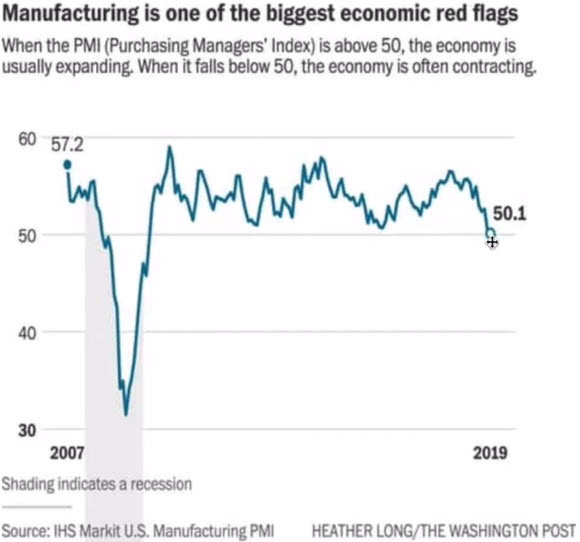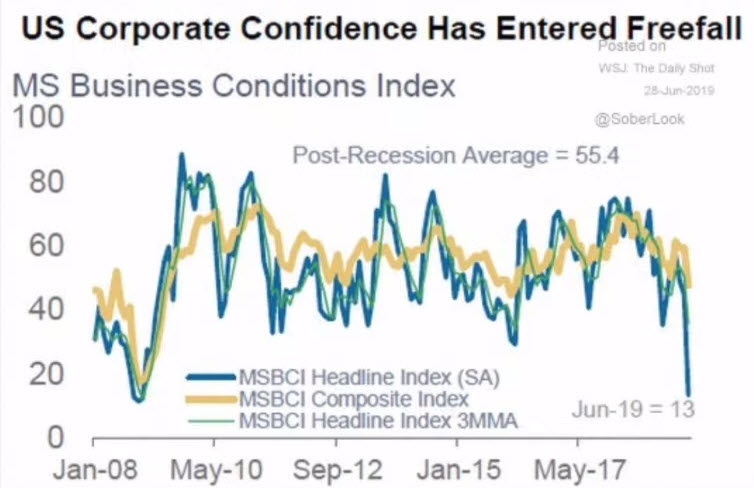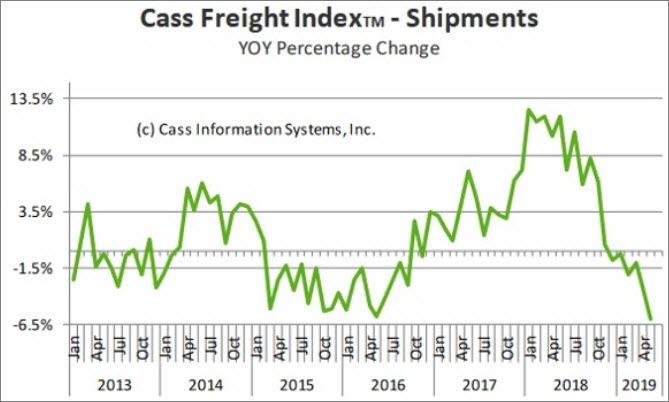While President Trump recently stepped across the invisible line called the DMZ, the economy crossed its own invisible line. At 121 months, the current economic expansion is the longest on record. It has another record. It is the slowest.
The great recession of ‘08-09 resulted in massive job losses. Only recently has the employment situation substantially improved. We have more job openings than applicants often thought to be impossible.
Manufacturing is a leading indicator. A slight dip will begin a recession watch.

This quarter’s earnings season begins this week. Stock buybacks have reduced shares achieving the primary objective of propping up earnings. Earnings growth is regaled by investors.
Fewer shares outstanding reduces the supply, and when demand exists, supports higher prices. Just coincidentally, it also supports the “inequitable” earnings of corporate officers.
Given the increasing trend to on-line shopping, retailers often struggle. Yet, the learned behavior of deal shopping has pressured many non-retail industries. Corporate officers are concerned.

Stock buybacks are concentrated in large companies with excess cash or access to easy and cheap debt. However, there is always a limit from the board rooms on debt exposure and cash reserves. Corporate stock repurchases have been slowing for nearly two years.
Meanwhile, major banks known as the “buy side” of the market have been systematically selling stock with every advance. Known as Dark Pools, their selling does not occur on the NYSE. It does get posted later and made public.
Corporations and Dark Pools are at odds with each other. One is pumping up price while the other is reducing risk exposure.
It is a poker game of $1T versus $100T.
Unless earnings and revenue begin an upward turn, expect the selling to expand. Retail investors relying on fundamentals, “buy and hold” or because they like a company will be surprised by the next bear market once again.
Trade talks continue in a manic depressive manner. Resolution is coming – or not. Expect more of hopes and hopes dashed. Market volatility will be associated with each headline.
Prices for tariff impacted products are rising. Higher prices result in excess inventories as sales decline. Eventually, prices are reduced along with profits.
Consumers still drive our economy. Buy something and it must be shipped to your store or home. All sources of shipping tell of slowing.

Freight rates are falling. As smaller truckers face bankruptcy, earnings forecast for larger firms are being reduced by management or Wall Street.
Recent headlines in the Wall Street Journal report slowing in ship operators, ports, rail, trucking and warehousing.
Manufacturing is slowing including lower sales of industrial robots which is a sign of excess capacity.
Market participants ignore all these signs speculating that the Fed will cut interest rates and the “Goldilocks Economy” will return. A recession start date is unknown. We haven’t had this data since 2008 when we were in a recession. This earnings season may provide a wake-up call.

